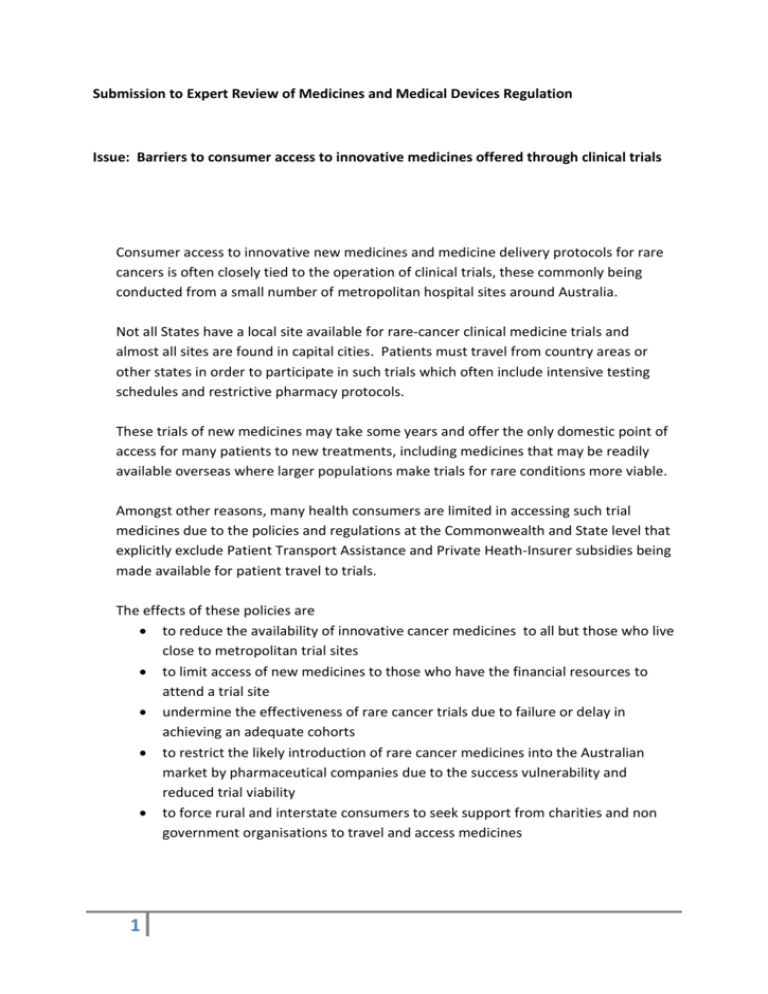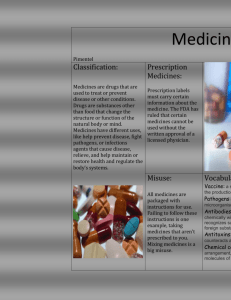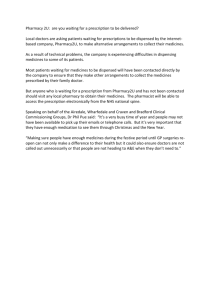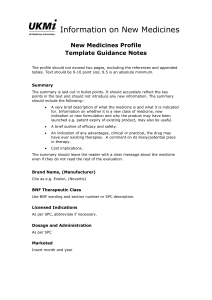Submission to Expert Review of Medicines and Medical Devices
advertisement

Submission to Expert Review of Medicines and Medical Devices Regulation Issue: Barriers to consumer access to innovative medicines offered through clinical trials Consumer access to innovative new medicines and medicine delivery protocols for rare cancers is often closely tied to the operation of clinical trials, these commonly being conducted from a small number of metropolitan hospital sites around Australia. Not all States have a local site available for rare-cancer clinical medicine trials and almost all sites are found in capital cities. Patients must travel from country areas or other states in order to participate in such trials which often include intensive testing schedules and restrictive pharmacy protocols. These trials of new medicines may take some years and offer the only domestic point of access for many patients to new treatments, including medicines that may be readily available overseas where larger populations make trials for rare conditions more viable. Amongst other reasons, many health consumers are limited in accessing such trial medicines due to the policies and regulations at the Commonwealth and State level that explicitly exclude Patient Transport Assistance and Private Heath-Insurer subsidies being made available for patient travel to trials. The effects of these policies are to reduce the availability of innovative cancer medicines to all but those who live close to metropolitan trial sites to limit access of new medicines to those who have the financial resources to attend a trial site undermine the effectiveness of rare cancer trials due to failure or delay in achieving an adequate cohorts to restrict the likely introduction of rare cancer medicines into the Australian market by pharmaceutical companies due to the success vulnerability and reduced trial viability to force rural and interstate consumers to seek support from charities and non government organisations to travel and access medicines 1 The rationale behind these regulatory positions may arise from a view that clinical trials are commercial concerns and as such should not be subsidised by public funds, however rare cancer trials are by their nature commonly non commercial or are managed by one of the COSA Clinical Trial Groups. Two areas of government regulation impact on this issue the policies that underpin Patient Transport Assistance schemes, commonly established by state/territory governments commonwealth regulated and listed insurable items by private health insurers Amendment of these regulatory positions could be considered particularly for rare cancers and conditions that suffer from small populations and reduced sample cohorts. Travel barriers add significantly to trial participation by children and young adults, particularly when their age is close to that where transfer to an adult hospital is likely. Given a common trial period of two years and enrolment period of two months, patients older than 15 are effectively discouraged from participating in trials and accessing new medicines unless an adult site is available in their city. In a worst case scenario it is conceivable that young patients may access new and effective cancer treatment medicines as part of a trial but then will no longer be able to access such medicines once they turn 18 and cannot afford to attend an adult trial site in another city; a tragic situation resulting in poor patient treatment outcomes and reduced trial success. 2





